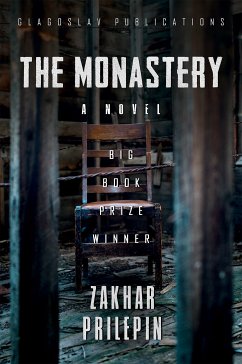Founded in the 15th century on an archipelago in the White Sea, from 1923 the monastery became a "camp of special designation," the foundation stone of the Soviet GULAG system. The novel describes a period when Solovki was being converted from a re-education camp for "socially damaging elements" into what eventually became a mass labor camp. The notion of a Utopia for "forging new human beings," complete with a library, athletic events, and research laboratories, eventually mutated into a hell of despotism and brutality.
Published with the support of the Institute for Literary Translation, Russia
Dieser Download kann aus rechtlichen Gründen nur mit Rechnungsadresse in A, B, BG, CY, CZ, D, DK, EW, E, FIN, F, GR, HR, H, IRL, I, LT, L, LR, M, NL, PL, P, R, S, SLO, SK ausgeliefert werden.









